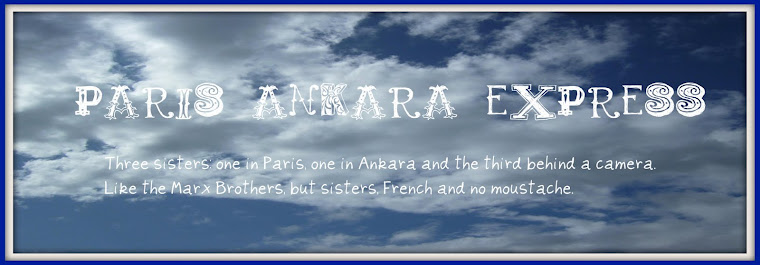The Guardian is debating whether it makes sense for a woman to take her husband's name when she marries. The article concludes that 'There lies the justification for the practice: all other things being equal, and the alternative considered, masculists want this more than feminists don't.'
I certainly didn't want to take my husband's name when we married. And he wasn't all that keen on making me take it either.
Most people understood that. When we got married in NYC, we filled in form asking us what names we wanted to take. It was fine to take any name, and I briefly considered suggesting we call ourselves Mr and Mrs Smith. People also understand, mostly, that we've chosen to give my last name to our son. What many people don't understand is that we've given our daughter her father's name. They should have the same name, they say. People will think they're not brother and sister, they say. They will have problems at school. Well not so far. People know they're brother and sister because they look alike, they're together a lot, they look out for each other. Maybe some people who don't know us think we're a reconstituted family, but frankly, who cares? This day and age, I should have thought that would help children fit in, not the reverse!
I've often wondered why I was so insistent in keeping my own name and passing it on. After all, that name doesn't really belong to me, and passing it on is hardly a feminist statement: it's been handed down from father to son for generations. Some great great uncle or distant cousin somewhere sometime had it. My mother doesn't.
One reason we have for hanging on to names generation after generation is that it helps us trace our ancestry, puts us neatly on the lower branches of the family tree. I know very little about the history of my last name. I'm not sure if it's Basque or from the Landes, or just Spanish. A few people from South America have been in touch with me to try and find out something about the origins of their names, thinking maybe we were related. I wasn't that interested. There are very few members of that family alive now, and none have ever spoken about ancestry.
In fact the only member of my family who's ever shown an interest in family history is my mother. She is the oldest daughter of an oldest daughter (bar an illegitimate sibling) and a few years ago she got hold of some papers belonging to her great-grand-mother. Our ancestor, a Josephine Schmitt was paralysed in childhood and recovered in her twenties. As she hadn't been to school she was put out to service in her sister's house. My mother traced her journey from Luxembourg to the East of France and eventually Paris. Then she turned to Josephine's daughter's adventures in the First World War: a lost fiance, and illegitimate child, a job as a washerwoman in Paris, and having to look after a mother who was again paralysed. My mother's grandmother had four daughters, all of whom were young parisian women during the second world war. This is fascinating family history, but not the kind you can do with names.
As an older daughter myself, I get much more a a sense of my history and identity from looking back at the female side of the family. So I don't think I need a name to help me feel part of history. This doesn't mean I don't want to keep my own name: I can't think of any good reason why I should take up a new one. And I can think of plenty of excellent reasons for a woman not to take her husband's name: historically speaking, it stinks of subjection. What I am saying is that caring about one's ancestry is not really a good reason for being desperate to pass on one's name, and I'm sure most men can see that.
That said, I can also understand why some women choose to change their names – it certainly isn't the case that most do just because their husbands want them to, i.e. not a case of feminism caring less than masculism, just a case for personal choice. There could be so many reasons for changing one's name that it's hardly worth trying to find a theory for it.
So given my views on genealogy, why did I insist my son take my name? Just that I didn't want to be the only member of our family to have a different name. As it is, it's fifty-fifty. I can see this wouldn't work so well with an odd number of children, but I don't feel we have to be consistent here, just as I don't think every married woman should retain her own name. Maybe what we should have done is take up the Manhattan Municipal Hall and called ourselves Smith!

1 comment:
Thanks for the post! I hear often the argument that for a woman to keep her own name at marriage, and pass it on to their children "is hardly a feminist statement: it's been handed down from father to son for generations." This is true - but isn't it true for one's partner's name as well? So, given that all other things are equal :-) when it comes to names, I do see a feminist reason to hold on to one's own. While both my husband's and my own name have been inherited through male lineages, at least mine has already been mine for quite a while and I have identified with it - as far as self-identification with a name goes.
Post a Comment